-
 Bitcoin
Bitcoin $83,188.6556
5.02% -
 Ethereum
Ethereum $1,568.7008
4.46% -
 Tether USDt
Tether USDt $0.9995
0.02% -
 XRP
XRP $2.0124
3.23% -
 BNB
BNB $586.5306
2.62% -
 Solana
Solana $120.1324
9.64% -
 USDC
USDC $0.9998
-0.04% -
 Dogecoin
Dogecoin $0.1589
5.08% -
 TRON
TRON $0.2425
2.68% -
 Cardano
Cardano $0.6221
5.28% -
 UNUS SED LEO
UNUS SED LEO $9.3911
0.07% -
 Chainlink
Chainlink $12.6151
6.46% -
 Avalanche
Avalanche $19.2738
7.93% -
 Toncoin
Toncoin $2.9591
0.94% -
 Stellar
Stellar $0.2318
2.70% -
 Sui
Sui $2.1917
6.11% -
 Shiba Inu
Shiba Inu $0.0...01205
5.08% -
 Hedera
Hedera $0.1670
-0.15% -
 Bitcoin Cash
Bitcoin Cash $311.3894
9.30% -
 MANTRA
MANTRA $6.4093
0.43% -
 Litecoin
Litecoin $76.3826
6.34% -
 Polkadot
Polkadot $3.5539
4.26% -
 Dai
Dai $1.0000
0.01% -
 Bitget Token
Bitget Token $4.3418
3.50% -
 Hyperliquid
Hyperliquid $15.3782
13.90% -
 Ethena USDe
Ethena USDe $0.9987
0.00% -
 Pi
Pi $0.6038
3.22% -
 Monero
Monero $203.1006
1.88% -
 Uniswap
Uniswap $5.2582
7.03% -
 OKB
OKB $53.2716
2.86%
how to tax nft
When selling an NFT, individuals must calculate their capital gains or losses by deducting the acquisition cost (including gas fees) from the final sale price.
Oct 23, 2024 at 11:53 pm
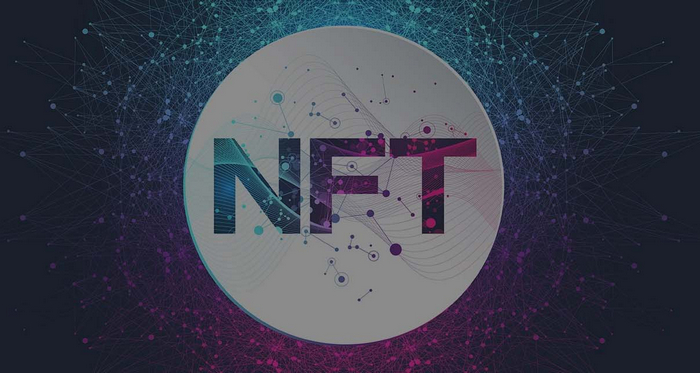
How to Tax NFTs
NFTs are a new and exciting asset class, but they can also be a bit confusing to tax. Here's a guide to help you understand how to tax NFTs:
1. What is an NFT?
An NFT is a non-fungible token. This means that it is a unique digital asset that cannot be replicated. NFTs are often used to represent ownership of digital items such as art, music, and videos.
2. How are NFTs taxed?
NFTs are taxed as capital gains or losses. This means that when you sell an NFT, you will need to pay taxes on the profit you make. The amount of tax you owe will depend on your tax bracket and the length of time you held the NFT.
3. How do I calculate my profit or loss on an NFT?
To calculate your profit or loss on an NFT, you will need to subtract your basis from your sale price. Your basis is the amount you paid for the NFT, plus any other costs associated with acquiring the NFT, such as gas fees.
4. What if I hold an NFT for less than a year?
If you hold an NFT for less than a year, your profit will be taxed at your ordinary income tax rate. This is the same rate that you pay on your wages and other income.
5. What if I hold an NFT for more than a year?
If you hold an NFT for more than a year, your profit will be taxed at the capital gains tax rate. The capital gains tax rate is lower than the ordinary income tax rate, so you will pay less in taxes.
6. How do I report NFT sales on my tax return?
You will need to report NFT sales on your tax return using Form 8949. Form 8949 is used to report gains and losses from the sale of capital assets.
7. What if I have any questions about NFT taxes?
If you have any questions about NFT taxes, you should consult with a tax professional. A tax professional can help you understand the tax laws and make sure that you are paying the correct amount of taxes.
Additional Information
In addition to the information above, there are a few other things you should keep in mind when taxing NFTs:
- NFTs are not considered to be collectibles. This means that you cannot use the more favorable collectibles tax rate when selling NFTs.
- NFTs are not subject to the wash sale rule. This means that you can sell an NFT and then immediately buy it back without having to wait 30 days.
- NFTs are a new asset class, so the tax laws are still evolving. It is important to stay up-to-date on the latest tax laws so that you can make sure that you are paying the correct amount of taxes.
Disclaimer:info@kdj.com
The information provided is not trading advice. kdj.com does not assume any responsibility for any investments made based on the information provided in this article. Cryptocurrencies are highly volatile and it is highly recommended that you invest with caution after thorough research!
If you believe that the content used on this website infringes your copyright, please contact us immediately (info@kdj.com) and we will delete it promptly.
- AB Charity Foundation Launches Global Operations, Unveiling Its Newly Upgraded Website
- 2025-04-12 01:20:12
- XRP and Mutuum Finance (MUTM) Are Going Against the Grain, Rewriting the Narrative on Presale Momentum
- 2025-04-12 01:20:12
- MAGACOINFINANCE – A Clean Entry With Purpose
- 2025-04-12 01:15:13
- Solaxy Rides Market Rebound with $29.7M Raised
- 2025-04-12 01:15:13
- Dogecoin (DOGE) Price Prediction: The Ongoing Dogecoin Price Crash Could Be About to End
- 2025-04-12 01:10:13
- Dogecoin—Once Seen as the Internet's Favorite Joke—Is Now Knocking on Wall Street's Door
- 2025-04-12 01:10:13
Related knowledge
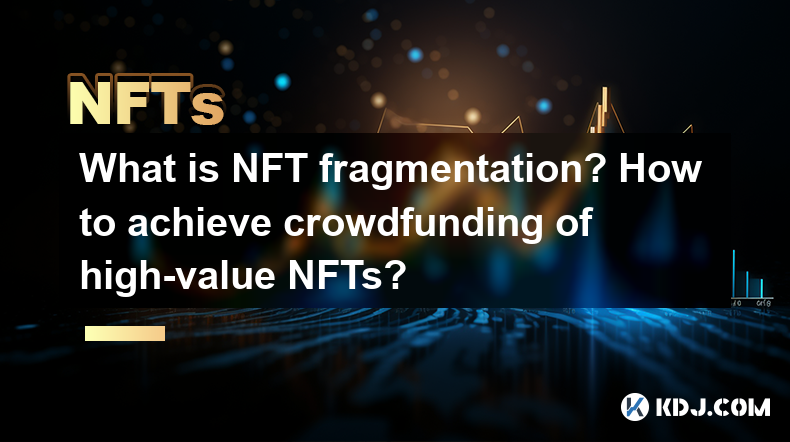
What is NFT fragmentation? How to achieve crowdfunding of high-value NFTs?
Apr 12,2025 at 12:00am
What is NFT Fragmentation? How to Achieve Crowdfunding of High-Value NFTs? NFT fragmentation is a process that allows high-value non-fungible tokens (NFTs) to be divided into smaller, more affordable pieces. This practice democratizes access to valuable digital assets, enabling more people to invest in and own parts of these NFTs. Fragmentation transfor...
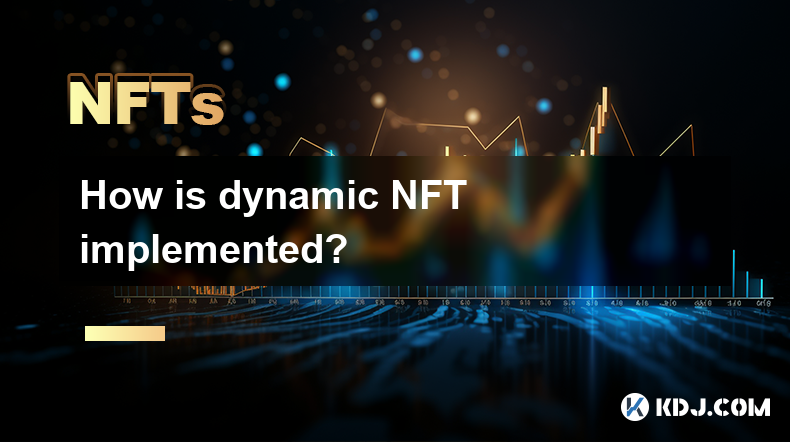
How is dynamic NFT implemented?
Apr 11,2025 at 04:56am
Dynamic NFTs, or dNFTs, represent a fascinating evolution in the world of non-fungible tokens. Unlike static NFTs, which remain unchanged once minted, dynamic NFTs can evolve, change, or update based on certain conditions or external data. This article will delve into the implementation of dynamic NFTs, exploring the technologies and processes involved ...
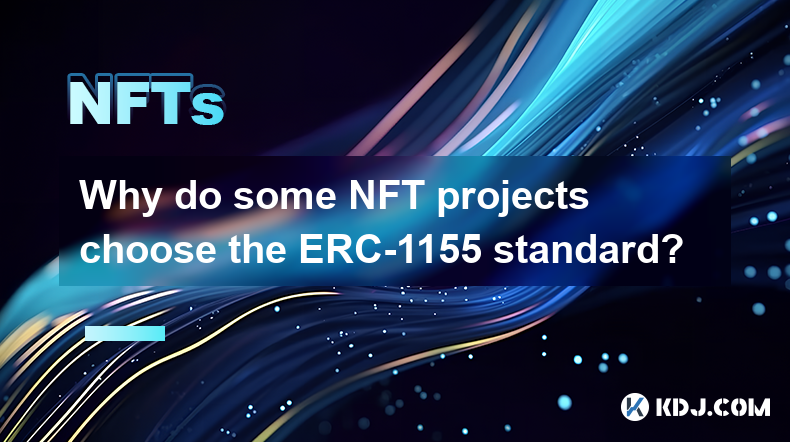
Why do some NFT projects choose the ERC-1155 standard?
Apr 08,2025 at 11:49am
The world of Non-Fungible Tokens (NFTs) has seen a significant rise in popularity and innovation, leading to the development of various token standards. Among these, the ERC-1155 standard has emerged as a versatile and efficient choice for many NFT projects. This article delves into the reasons why some NFT projects opt for the ERC-1155 standard, explor...

What is the essential difference between NFT and Bitcoin?
Apr 11,2025 at 12:14pm
The world of cryptocurrencies and digital assets has seen significant growth and diversification over the years, with Bitcoin and Non-Fungible Tokens (NFTs) being two of the most talked-about innovations. While both fall under the broader umbrella of blockchain technology, they serve different purposes and have distinct characteristics. This article wil...
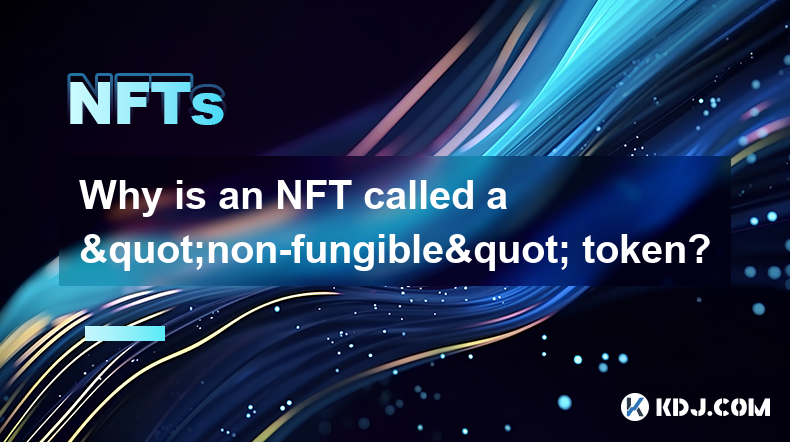
Why is an NFT called a "non-fungible" token?
Apr 11,2025 at 06:15am
An NFT, or Non-Fungible Token, is a unique digital asset that represents ownership or proof of authenticity of a specific item or piece of content, typically stored on a blockchain. The term 'non-fungible' is crucial to understanding the nature and value of these tokens. In this article, we will delve into the reasons why an NFT is called a 'non-fungibl...
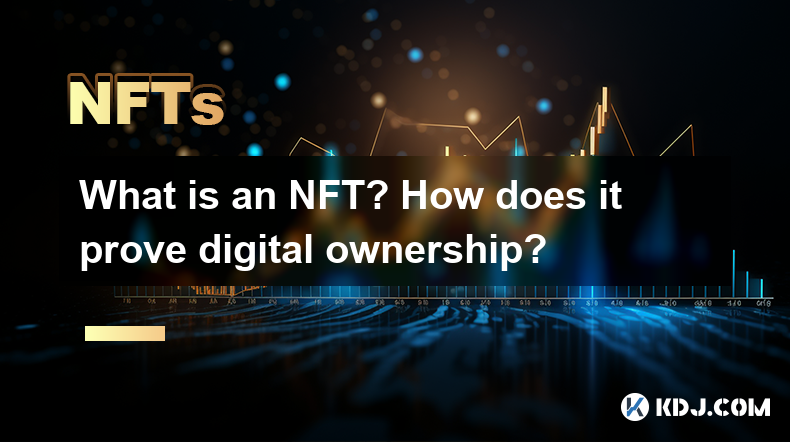
What is an NFT? How does it prove digital ownership?
Apr 09,2025 at 11:21pm
An NFT, or Non-Fungible Token, is a unique digital asset that represents ownership or proof of authenticity of a specific item or piece of content, typically stored on a blockchain. Unlike cryptocurrencies such as Bitcoin or Ethereum, which are fungible and can be exchanged on a one-to-one basis, NFTs are distinct and cannot be exchanged on a like-for-l...

What is NFT fragmentation? How to achieve crowdfunding of high-value NFTs?
Apr 12,2025 at 12:00am
What is NFT Fragmentation? How to Achieve Crowdfunding of High-Value NFTs? NFT fragmentation is a process that allows high-value non-fungible tokens (NFTs) to be divided into smaller, more affordable pieces. This practice democratizes access to valuable digital assets, enabling more people to invest in and own parts of these NFTs. Fragmentation transfor...

How is dynamic NFT implemented?
Apr 11,2025 at 04:56am
Dynamic NFTs, or dNFTs, represent a fascinating evolution in the world of non-fungible tokens. Unlike static NFTs, which remain unchanged once minted, dynamic NFTs can evolve, change, or update based on certain conditions or external data. This article will delve into the implementation of dynamic NFTs, exploring the technologies and processes involved ...

Why do some NFT projects choose the ERC-1155 standard?
Apr 08,2025 at 11:49am
The world of Non-Fungible Tokens (NFTs) has seen a significant rise in popularity and innovation, leading to the development of various token standards. Among these, the ERC-1155 standard has emerged as a versatile and efficient choice for many NFT projects. This article delves into the reasons why some NFT projects opt for the ERC-1155 standard, explor...

What is the essential difference between NFT and Bitcoin?
Apr 11,2025 at 12:14pm
The world of cryptocurrencies and digital assets has seen significant growth and diversification over the years, with Bitcoin and Non-Fungible Tokens (NFTs) being two of the most talked-about innovations. While both fall under the broader umbrella of blockchain technology, they serve different purposes and have distinct characteristics. This article wil...

Why is an NFT called a "non-fungible" token?
Apr 11,2025 at 06:15am
An NFT, or Non-Fungible Token, is a unique digital asset that represents ownership or proof of authenticity of a specific item or piece of content, typically stored on a blockchain. The term 'non-fungible' is crucial to understanding the nature and value of these tokens. In this article, we will delve into the reasons why an NFT is called a 'non-fungibl...

What is an NFT? How does it prove digital ownership?
Apr 09,2025 at 11:21pm
An NFT, or Non-Fungible Token, is a unique digital asset that represents ownership or proof of authenticity of a specific item or piece of content, typically stored on a blockchain. Unlike cryptocurrencies such as Bitcoin or Ethereum, which are fungible and can be exchanged on a one-to-one basis, NFTs are distinct and cannot be exchanged on a like-for-l...
See all articles























































































